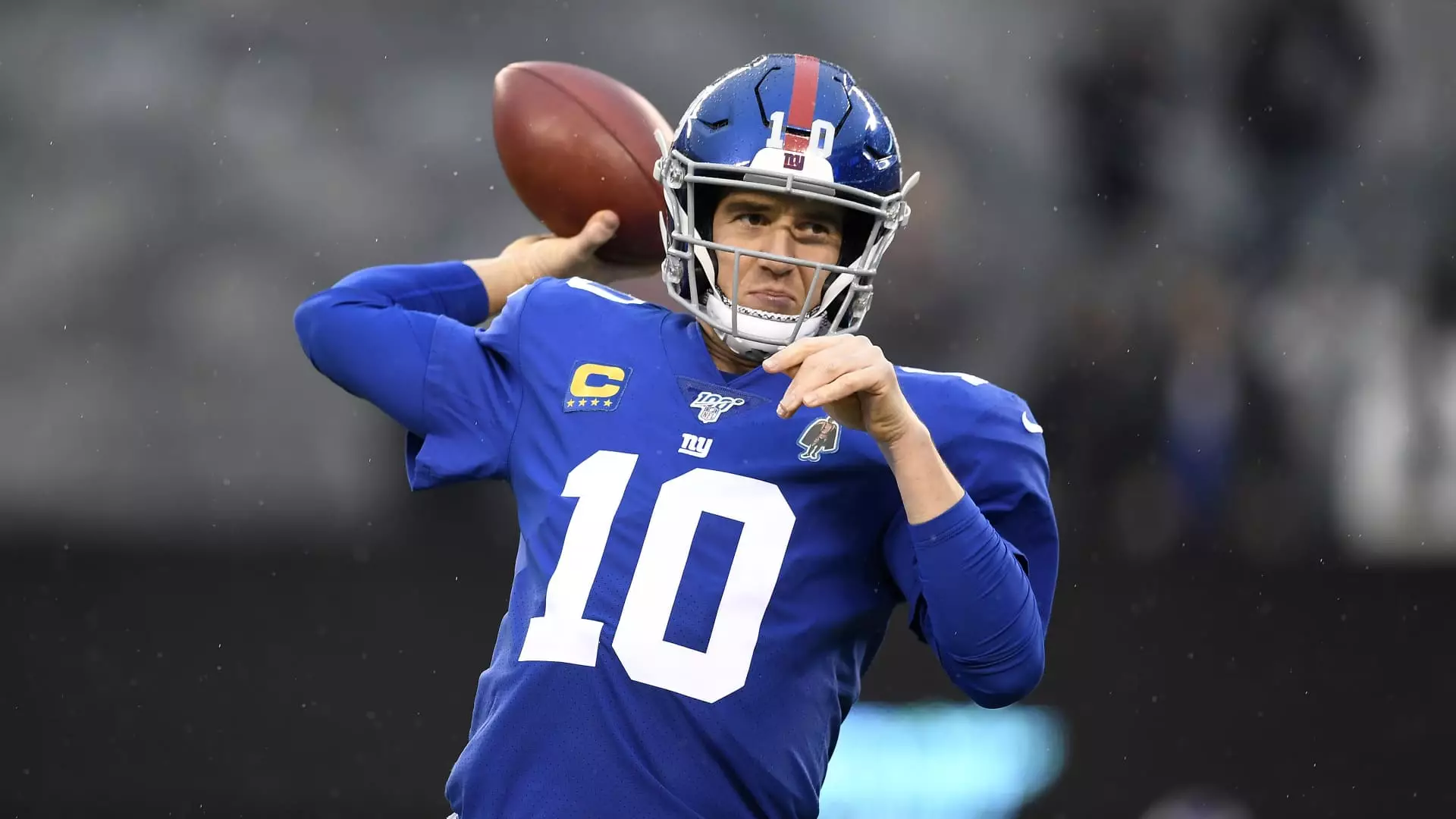In recent years, the narrative surrounding professional sports franchise valuations has spun into an unquestionable upward trajectory, with teams like the New York Giants seemingly worth an astronomical $7.85 billion—almost double what they fetched just a decade ago. But beneath this glittering veneer of prosperity lies a complex web of inflated perceptions and market distortions fueled by aggressive corporate and investor interests. When Eli Manning, a beloved former Giant, admits he cannot afford even a tiny stake because of the astronomical prices, it questions whether these valuations are truly grounded in fundamental economic reality or simply inflated peaks pushed higher by speculation and media hype.
The rapid proliferation of multi-billion dollar valuations across both NFL and NBA teams indicates a trend that is increasingly unsustainable. New ownership stakes are being sold at record-high valuations, such as the San Francisco 49ers or the Los Angeles Lakers, suggesting an overheated market where the boundaries of realistic valuation are blurred. When seemingly every franchise is perceived as a lucrative investment, it creates a dangerous bubble, reminiscent of past financial crashes where the real value becomes secondary to the perception of wealth creation.
The Hazards of Overvaluation and Market Distortion
Many critics argue that these high valuations are less an indicator of intrinsic value and more an extension of elite branding, regional dominance, and the allure of sports as entertainment commodities. Major franchises are increasingly viewed as a status symbol for wealthy investors rather than genuine value-generating entities. This perception might drive up prices artificially, disconnecting the true economic utility from the inflated figures reported in the media.
For a former player like Manning, the reality is stark—these inflated numbers have priced them out of the market, emphasizing how disconnected the valuation metrics are from individual investor capability. The fact that NFL teams are now considered prime assets for private equity underscores a troubling trend: sports teams are being treated more as financial tools than as community assets or passion-driven enterprises. This shift risks alienating the core fans and undermining the sports’ cultural roots as democratic entertainment accessible to many, not exclusive enclaves for the ultra-rich.
Moreover, the broader economic environment raises questions about the sustainability of these valuations. With rising interest rates and increased scrutiny on corporate valuations, the risk becomes that these inflated figures could eventually deflate, leaving investors holding assets worth far less than their purchase price. This potential correction could have ripple effects, destabilizing local economies that have become dependent on sports revenue and associated industries.
The Center-Right Perspective: Challenging the Illusion of Endless Growth
From a center-right liberal stance, it is essential to approach the sports franchise bubble with skepticism—not out of cynicism, but out of prudence. The obsession with ever-increasing valuations reflects a broader societal tendency to prioritize spectacle and wealth-symbolism over substantive economic health. While sports franchises are undeniably significant cultural institutions, their transformation into assets that continually escalate in value without corresponding productivity risks fostering an unsustainable economic environment.
The rising trend of private equity investing in sports teams raises particular concerns. These firms view franchises primarily as profitable investment vehicles, often at the expense of local communities, loyal fans, and long-term cultural value. The recent interest of investors like Julia Koch or Marc Lasry highlights a shift toward the commodification of sports, where decision-making often hinges more on potential returns than on preserving tradition or fostering community engagement.
For the average fan and small investor, the message is stark: the game is being reshaped into a high-stakes financial arena, eroding the accessibility and authenticity that once defined sports culture. As Manning’s own remarks reveal, even iconic figures find themselves priced out, illustrating how the true value of these assets is being co-opted by wealth accumulation rather than shared cultural or economic benefit. It’s an indication that the current market dynamics may prioritize short-term gains over long-term stability—something that warrants serious skepticism and careful oversight.
The inflated valuations of NFL and other sports teams should serve as a warning that modern capitalism, especially in its most unbounded form, often loses sight of fundamental economic principles. If the sports industry continues down this path, it risks creating a fragile bubble that could burst, leading to significant financial fallout and a diminished cultural legacy for future generations.

